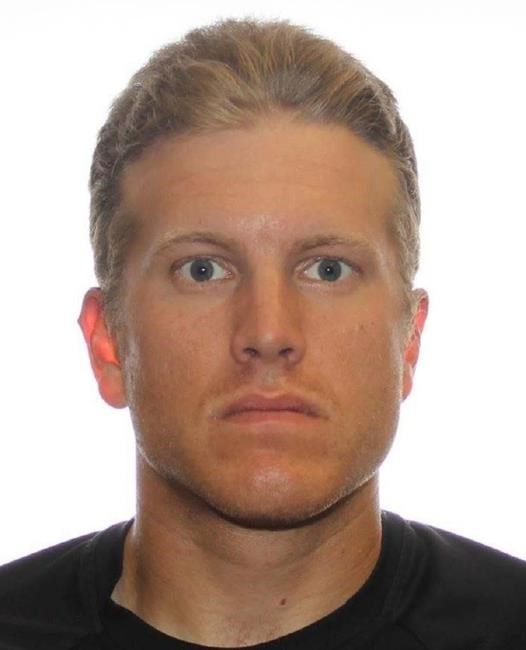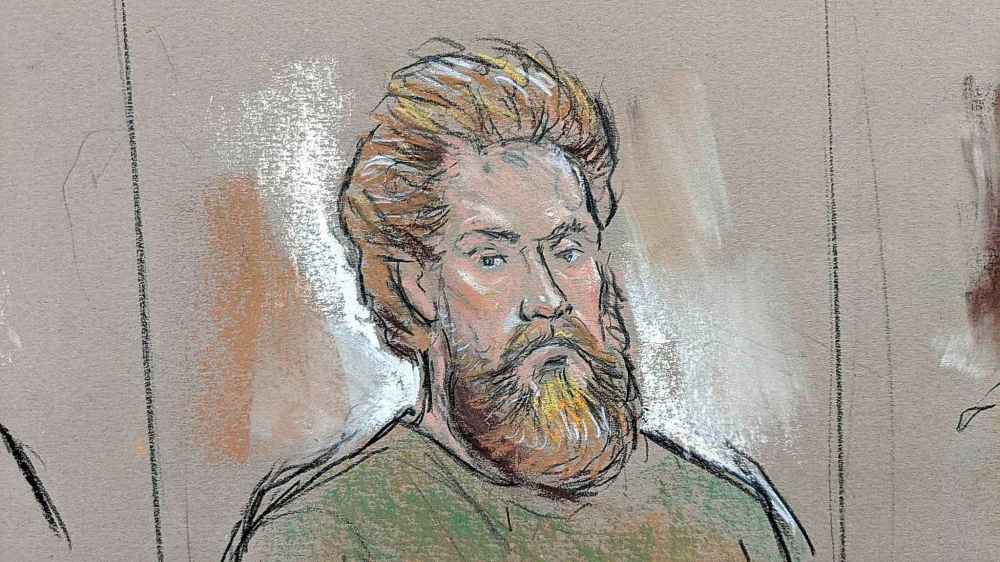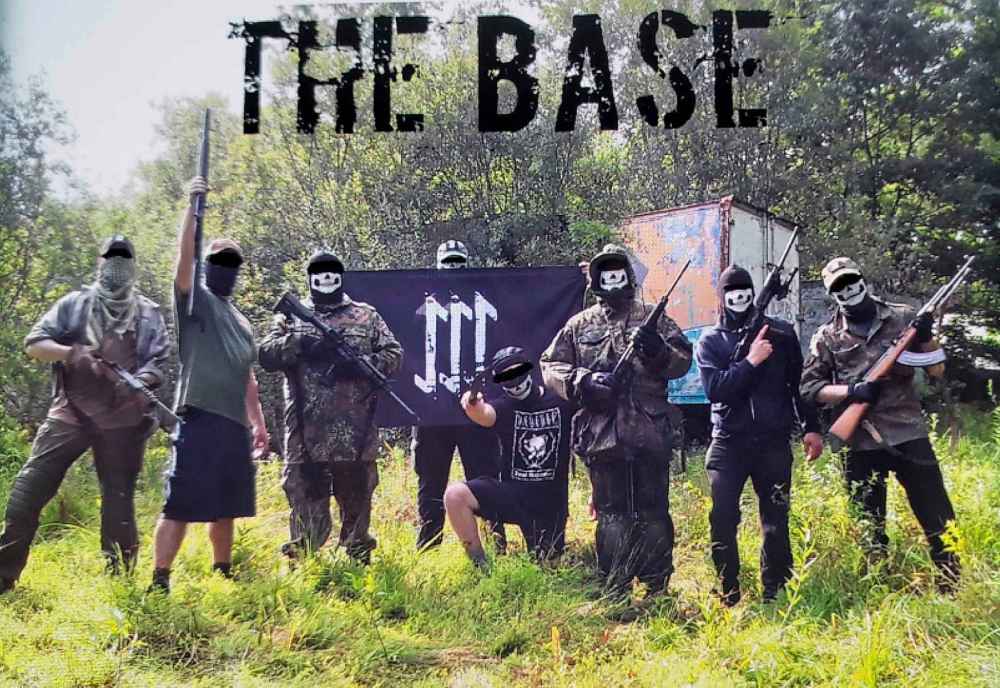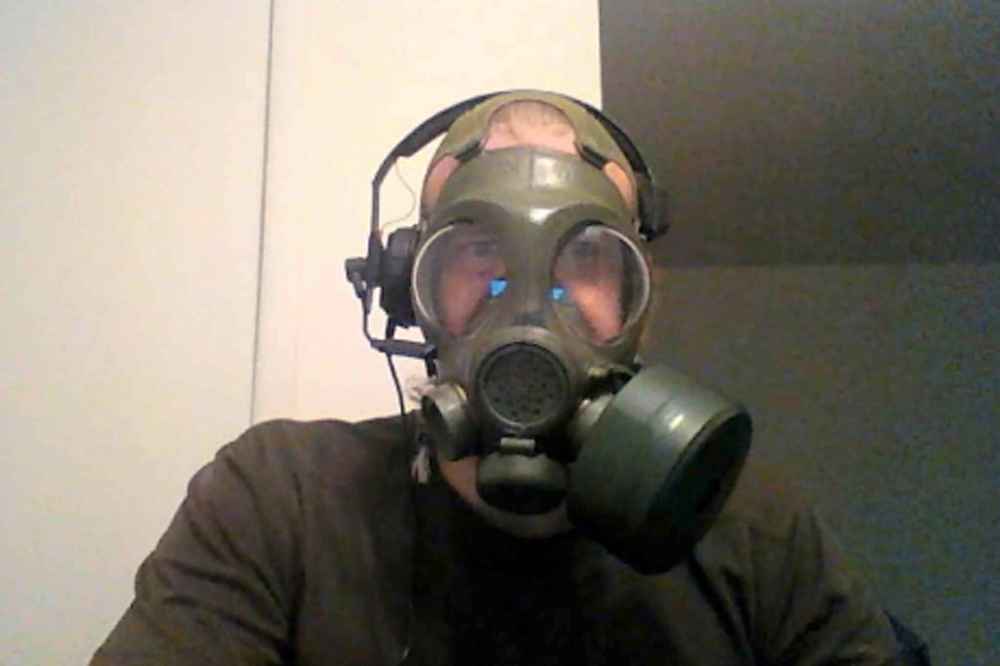Recognized, relieved Months after exposing disgraced Canadian soldier as neo-Nazi, Free Press reporter gratified to attend accused terrorist's hearing in U.S. federal courtroom
Read this article for free:
or
Already have an account? Log in here »
To continue reading, please subscribe:
Monthly Digital Subscription
$0 for the first 4 weeks*
- Enjoy unlimited reading on winnipegfreepress.com
- Read the E-Edition, our digital replica newspaper
- Access News Break, our award-winning app
- Play interactive puzzles
*No charge for 4 weeks then price increases to the regular rate of $19.00 plus GST every four weeks. Offer available to new and qualified returning subscribers only. Cancel any time.
Monthly Digital Subscription
$4.75/week*
- Enjoy unlimited reading on winnipegfreepress.com
- Read the E-Edition, our digital replica newspaper
- Access News Break, our award-winning app
- Play interactive puzzles
*Billed as $19 plus GST every four weeks. Cancel any time.
To continue reading, please subscribe:
Add Free Press access to your Brandon Sun subscription for only an additional
$1 for the first 4 weeks*
*Your next subscription payment will increase by $1.00 and you will be charged $16.99 plus GST for four weeks. After four weeks, your payment will increase to $23.99 plus GST every four weeks.
Read unlimited articles for free today:
or
Already have an account? Log in here »
Hey there, time traveller!
This article was published 23/01/2020 (2147 days ago), so information in it may no longer be current.
Greenbelt, Md. — As Patrik Mathews was led into U.S. federal court in Greenbelt, Md., Wednesday morning, his head was on a swivel. He seemed to scan the faces — lawyers, journalists, law enforcement — that lined the dark wooden benches in the courtroom.

And then he saw me.
His eyes narrowed to slits; his face scrunched up, transformed into an angry grimace. He glared — hard.
We looked at one another for what felt like a long time, but was likely only a few seconds, before I dropped my eyes to the notebook in my lap and scribbled away. When I looked up, he was seated in his chair, facing the front of the court.
If he was attempting to engage me in a staring contest — I suppose he won that round. I’m happy to concede.
It was the first time we’d locked eyes in five months, since I infiltrated the neo-Nazi paramilitary group he was a recruiter for in Winnipeg, exposing him as a violent white supremacist in the process.
The difference: this time he knew I wasn’t a white nationalist. He knew I was a newspaper reporter.

The Patrik Mathews I met in Whittier Park last summer is the same Patrik Mathews I saw in a U.S. federal courtroom this week. The long, bushy beard was back — he pulled and twisted it between his fingertips — during the hearing. His hair was grown out once more, thick and pushed back on his head.
There was anger there, too. Except this time, rather than ranting viciously about racial and religious minorities, the hatred seemed to be in the eyes — directed at me.
After the Winnipeg Free Press exposed Mathews, the story took on a life of its own. It’s a testament to the fact life is often stranger than fiction. The plot reads like a thriller novel — one so laden with twists and turns it borders on the overwrought.
Police raid his Beausejour home and seize his guns, only to release him without charge. He flees the country and resurfaces in the U.S., aided by a network of like-minded neo-Nazis, secretly travelling through multiple states while evading law enforcement.
The neo-Nazis begin planning attacks, violence, mayhem and murder. Little do they know they’ve been infiltrated by the highest levels of federal law enforcement, who are deploying the most sophisticated investigative techniques at their disposal.
By the time he’s arrested and hauled into court, the story isn’t just being reported on by the Free Press, but by the likes of the Washington Post and the New York Times and myriad other media across North America and overseas.

Before all that, however, Mathews was exposed in Winnipeg. And disappointingly, it didn’t take long for people to trip over themselves to make excuses for his conduct.
For many, while Mathews’ views were reprehensible, he wasn’t all that serious about them. Or the Free Press was sensationalizing a story to sell newspapers. Or he was just a misguided, lost young man.
And so on.
It was disheartening at the time, given everything I’d put myself through in pursuit of the story. I wouldn’t have done that unless I’d thought Mathews and his organization posed a serious threat to our community — particularly to racial and religious minorities.

When I saw violent neo-Nazis recruiting in Winnipeg, it drew into sharp focus — to borrow a phrase from the late Christopher Hitchens — a dividing line between everything I love and everything I hate.
In the hate column: bigotry and racism, violence and conformity, conspiratorial and ideological thinking. In the love column: multiculturalism, democratic elections, individual liberty, a free press.
This country fought a war to roll back the tide of fascism last century. Statements like “never forget” or “never again” shouldn’t be idle slogans or dead words on our lips, but a call for an engaged citizenry that recognizes the serious threat fascists pose.
That’s why it was refreshing to hear the words of Assistant U.S. Attorney Thomas Windom in court Wednesday. He stood up, faced the judge, and declared Mathews a member of a domestic terrorist organization.
He didn’t minimize, excuse or misdirect. He called a spade a spade.
Our home and hate-stained land

Posted:
It’s one thing to say good journalism protects communities, but quite another to see it in action. Sometimes, it takes a shape that even the journalist could not have expected. Sometimes, it sheds light on dark corners that too long have gone unnoticed, exposing what dangers lurk in those shadows.
In his seminal essay Politics and the English Language, George Orwell warned about the dangers of misusing words; language can sanitize and obfuscate as much it can enlighten and inform.
The task of a writer is to use words precisely and push back against the debasement of language, to never — as Orwell put it — “make lies sound truthful and murder respectable, and to give an appearance of solidity to pure wind.”
Mathews has not been convicted of a crime. He should be considered innocent until proven guilty in a court of law.
But having said that, I know — from first-hand experience — who and what he is. I learned what I needed to know on a warm, nerve-racking evening in Whittier Park last summer.
And that’s why it was a relief to see reality acknowledged in plain, clear language in that courtroom Wednesday.
Windom called Mathews a member of a domestic terrorist organization and Judge Timothy J. Sullivan labelled him a dangerous individual captured by an even more dangerous world view.
Someone had finally called a spade a spade.
ryan.thorpe@freepress.mb.ca
Twitter: @rk_thorpe

Ryan Thorpe likes the pace of daily news, the feeling of a broadsheet in his hands and the stress of never-ending deadlines hanging over his head.
Our newsroom depends on a growing audience of readers to power our journalism. If you are not a paid reader, please consider becoming a subscriber.
Our newsroom depends on its audience of readers to power our journalism. Thank you for your support.
History
Updated on Thursday, January 23, 2020 9:29 PM CST: Adds place line.
Updated on Thursday, January 23, 2020 11:19 PM CST: Final version












